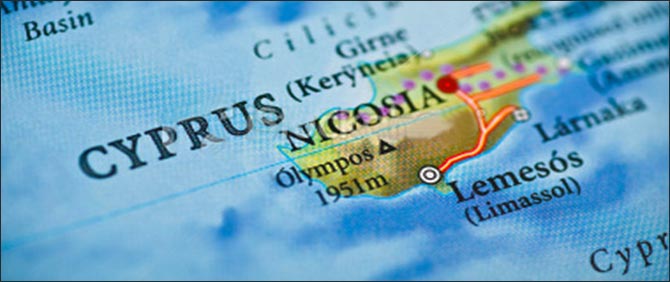Affiliation of Cyprus companies in the light of Transfer Pricing recommendations of Organization for Economic Cooperation and Development

On June 30, 2017, the Cypriot tax authorities published the Circular, which establishes a new tax legislation regime (hereinafter referred to as the “Circular”) regarding the regulation of financial transactions between related parties (hereinafter referred to as “inter-group financial transactions”) taking into account the norms of transfer pricing (hereinafter referred to as TP).
This regime entered into force on July 1, 2017, and generally reflects the “arm-length” principle set out in the TP recommendations of the Economic Cooperation and Development Organization (OECD).
According to the recommendations of the OECD and the OECD Model Tax Convention on Income and Capital, affiliated enterprises will be considered as such if:
- An enterprise of one of the Contracting States shall directly or indirectly participate in the management of the enterprise of the other Contracting State, in control over it or in its capital; or
- The same persons directly or indirectly participate in the management of the enterprise of one of the Contracting States and the enterprise of the other Contracting State, in control over them or in their capital.
The OECD recommendations and the national legislation of Cyprus do not set a threshold from which control and / or participation begins.
The Circular requires comparability analysis based on the “arm's length” principle in order to determine (“delineating”) the intra-group financial transaction and determine the applicable market remuneration for it. It is worth noting the requirements for analyzing comparability of (1) capital adequacy and (2) a sufficient level of presence in Cyprus with respect to intra-group financial transactions.
The Circular relates to taxation procedures for Cyprus tax residents and permanent representations located in Cyprus, which conduct intra-group financial transactions, including the granting of loans or cash advances to related companies that involve remuneration in the form of interests and are funded by financial instruments as debt obligations, private loans, advance cash, etc.
The Circular specifies that, according to Article 33 of the Cyprus Income Tax Law, remuneration for intra-group financial transactions must comply with the “arm's length” principle and the price agreed by independent parties in a comparable bargain made at the market under similar conditions.
In accordance with the European Directive 2017/828, amending the European Union Directive 2007/36 “on the exercise of certain rights of shareholders in companies whose shares are admitted to organized trading”, a definition of related parties is introduced . The EU Directive in this case makes reference to the International Financial Reporting Standards.
According to International Financial Reporting Standard (IAS) 24 “Disclosure of information on related parties”, a related party is:
A private person or company associated with the organization drawing up its financial statements:
A private person or a close family member of a given private person is a related party of the reporting company if the person:
- exercises control or joint control over the reporting organization;
- has a significant impact on the reporting organization; or
- is included into the key management personnel of the reporting organization or its parent organization.
A company is a related party of a reporting company if any of the following conditions applies to it:
- This company and the reporting company are members of the same group (this means that all the parent and all subsidiaries of the same controlling party are related).
- One company is an associate or a joint venture of another (or one company is an associate or a joint venture of a member of a group, which includes another company).
- Both companies are joint ventures of the same third party.
- One company is a joint venture of a third party, and the other company is an associate of that third party.
- A company is controlled or jointly controlled by the person referred to in subparagraph (a).
- A person referred to in subparagraph (1) has a significant impact on the company or is part of the key management personnel of the company (or its parent company).
- A company or any member of the group, of which it is a part, provides the services of key management personnel of the reporting company to another company or its parent company.
Indeed, according to this standard, the following companies are not related parties:
- Two companies, because of the very fact that they have a common director or another member of key management personnel, or because a member of the key management personnel of one company has a significant impact on another company;
- Two participants in a joint venture, because of the very fact that they exercise joint control over the joint venture;
- A separate buyer, supplier, franchisor, distributor or general agent with whom the company conducts significant activities, because of the very fact of the resulting economic dependence.
© Alexander Shushin, Law & Trust International Lawyer, 2018





























































